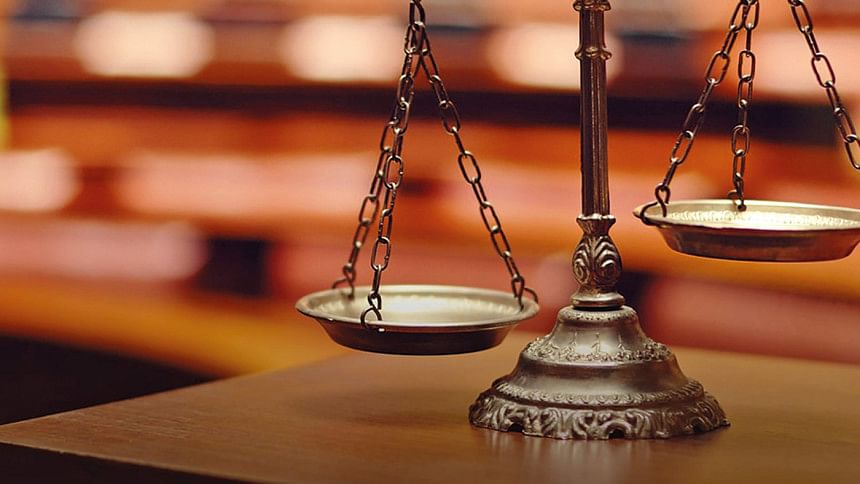Hindu women’s right to inheritance

Dayabhaga and Mitakshara are two schools of Hindu inheritance law. Hindus in India's West Bengal, Assam, and Bangladesh mainly follow the Dayabhaga school. Non-Bengali society, on the other hand, i.e., Mumbai, Madras, Punjab, Benares, Maharashtra, and other locations, follow the Mitakshara doctrine.
These two schools were established in response to Hindu scriptures and Samhitas that chronicle the practices that Hindus must follow in their personal lives. In imitation of the Hindu inheritance distribution system, daughters are not usually given a share in the father's property while the sons are still alive. Although it is not explicitly mentioned in the commentary, this practice has been going on for ages. As a result of this social norm, women are usually deprived of their father's wealth.
However, following the landmark case of Danamma vs. Amar in 2018, India has amended its Hindu Inheritance Act, 1956. The Supreme Court of India ruled in this case that under the reformed Hindu Succession Act, 2005, a daughter has equal property rights with their male counterparts. Again, the Supreme Court of India reiterated their verdict, stating that a woman can now claim an equivalent portion in the family property as a coparcener under Section 6 of the Hindu Inheritance Act, which was reinstated in 2005 to give women equal inheritance rights.
According to Articles 27 and 28 of the Constitution of Bangladesh, all citizens are equal in the eyes of the law. Even though the Indian Hindu inheritance Act of 1956 was modified in 2005 and 2007 to realise women's rights, the Hindu inheritance law in Bangladesh remains unchanged.
Also, Hindus in our country are usually provided with legal recourse under British Law. One of the reasons for this is that Hindu Dayabhaga law is not well-represented in our country, and most Hindus are unaware of the Dayabhaga law of Hindu schools, which has less practical implications. Even though Bangladesh has a Hindu Inheritance Act of 1929, it only applies to Mitakshara practitioners, where most people in Bangladesh follow the Dayabhaga school of Law. So, it is regrettable for the policymakers of Bangladesh that they have not yet been able to ensure law which is applicable for the larger Hindu population.
The Law Commission has recommended amendments the Hindu Inheritance Act in order to provide Hindu women in Bangladesh equal rights to their father's property. In 2012, it proposed a new law to revamp the Hindu Inheritance Act which included nine provisions emphasising equal property rights for women. However, the government was unable to take any further action due to the resistance of some Hindu scholars. The national alliance Hindu Ain Pronoyoney Nagorik Udyog has proposed the Hindu Inheritance Act 2020 containing 17 sections.
Some arguments against reform include the perception that the social system of Bangladesh is not conducive to Hindu law reform because Bangladesh is a predominantly Muslim country. On top of that, scholars argue because neighboring India and Nepal are Hindu-majority countries, Hindu law in these countries has been changed long ago to meet the needs of the time. Moreover, the democratic systems of India and Bangladesh are not analogous, and law reform will exacerbate the complexity of Hindu property distribution. Scholars also contend that if such legislation is enacted, no one will agree to marry a girl who does not own property, and dowry will become more common. Besides this, as is frequently seen in numerous family court cases, such property allotment will increase the level of violence against women.
In general, Hindu women receive Stridhana as a gift from their father during their marriage. Since Hindu marriages do not require registration, when a woman divorces, she is usually unable to file a claim for maintenance and other benefits. As per the Hindu Women's Rights to Property Act, 1937, women did not inherit any property. The 1943 Act later amended it, and after 83 long years, in 2020, the High Court Division ruled in the case of Jyotindranath Mandal vs. Gouri Dasi that Hindu women would get an allotment in their husband's property. Reviewing the history of Hinduism, it is seen that during the Vedic period, women were in a very respectable and high position, but their rights began to erode over time. Later, after the Vedic period, there were many changes in various treatise where women's property rights were utterly abolished. Indisputably, this is not acceptable in today's socio-economic context because women are now leading worldwide. Women's inheritance includes more than simply a property and economic rights. Women's positions in the family, society, and state are strengthened by legacy. In conclusion, there is no alternative to give equal rights to women to build a modern social system. In this context, Hindu scholars and policymakers must come forward to reform the Hindu law so that equal rights for women are established in society.
The writer is a student of law at North South University.

 For all latest news, follow The Daily Star's Google News channel.
For all latest news, follow The Daily Star's Google News channel. 



Comments